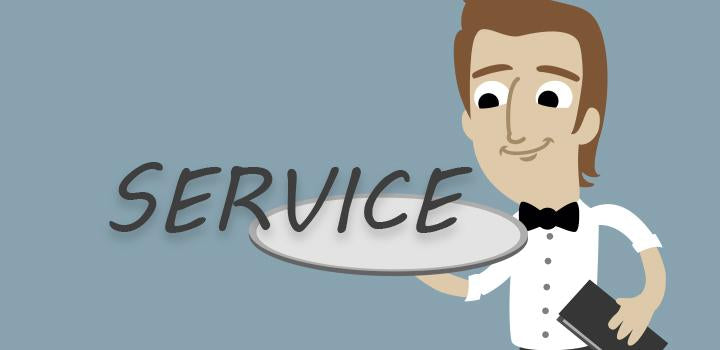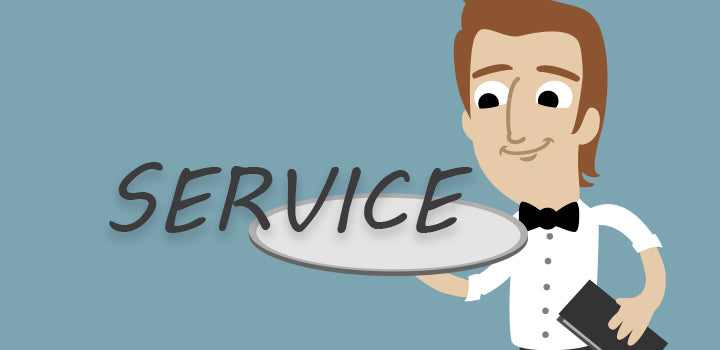News
Looking to elevate your cocktail game, streamline your bar operations, or simply unlock the secrets of the perfect pour? You've come to the right place!
At Überbartools™, we're passionate about all things bar-related, and we're dedicated to sharing our knowledge and insights with you.

How long should your customer wait for a drink? PART TWO

The point of pour paradigm: How to guarantee the best cocktail experience
THE RELENTLESS PURSUIT OF BEING OUR VERY BEST
Better Tools and Training Trumps Talent
Wrist Burn (Why You Hurt at Work)
Bar and Kitchen staff develop painful issues which are the result of years of repetitive work. Wrist burn is commonly suffered throughout the hospitality industry which is a culmination of work load placed on the wrist.

Why In-House Training is your best bet

How Cocktail Culture improves lives in Asia
Hospitality - Finding Staff!
It seems the same re-occurring problem is equally faced by bars, restaurants and hotels, when the following refrain is heard: “Hey, do you know anyone, who can……..? ”
FROM PHONE RESERVATION TO RAVING FAN... FOLLOW THIS SCRIPT AND LEAD YOURSELF TO CUSTOMER LOYALTY

In a world where communication is increasingly disconnected, hospitality remains inherently human. At a number of points, our industry has the opportunity to provide real interactions that can turn into remembered experiences within guest’s hearts.
This personal nature, expressed through everything from first-impressions to final goodbyes, can potentially become another competitive advantage for your venue; as long as you manage to convey it authentically.
Ironically, this same warmth, responsiveness and care can be projected even before a customer meets your staff face-to-face. Follow this script below to transform an unknown visitor into an instant raving fan – all before they actually arrive at your venue. Sound impossible? Give the role-play below a try!
Phone rings in a restaurant…
Staff Member: Good afternoon… this is [NAME OF VENUE]
Guest: Hi I’d like to make a reservation for… at… on…
Staff Member: Certainly Sir/Ma’am, it will be our pleasure. May l ask if this is your first time joining us or are you a returning guest?
If he or she is a first-time guest…
Staff Member: We are looking forward to welcoming you and your friends, and we’re looking forward to providing a wonderful evening.
Is there anything specific you’d like us to take care of before you arrive, say a special occasion?
The conversation continues shortly thereafter.
This is a the first big step towards an ultimately happy, or daresay ecstatic, guest— one who is looking forward to a new experience and is confident in the knowledge that their friends will be happy with the choice of venue selected.
From here manually input the details gathered on your reservation system, noting NEW GUEST and special requirements (if any).
With this system, needs and expectations of the group are assessed, and staff members are aware of potential areas to go above and beyond— all before the evening begins.
Follow through ensures when the guests arrive, whoever welcomes them will be able to maintain expectations and extend the personal connection established at the very first touch point.
If the person calling is a returning guest, make use of the same system by pulling up the guest’s history (if on file). Continue by noting anything relevant and informing front of house staff to look for further opportunities to add nice touches or a friendly flourishes to the visit.
There are so many more extra touches your staff members can add throughout the evening to enhance guest experience, critical of course that each team member in your chain of service is willing to pay attention and provide the same level of care.
This level of consideration is usually provided at top tier venues. The creation of higher customer service standards particularly when not initially expected can really resonate with guests and can easily (and almost effortlessly) become the difference between sending off a one-time diner and welcoming back a life-long regular.
NEVER HIRE THE WRONG PEOPLE AGAIN... THE 4 C'S TO EMPLOYMENT SUCCESS

In an industry with such a high turnover rate, staffing changes are a constant consideration for any bar manager. Make the right decision and your team’s lives becomes easier, their morale becomes higher, and their work becomes more profitable – but make the wrong decision, and everything can turn around in an instant.
When a dutiful hire turns out to be a dud, recovering is exhausting — especially if it was your job to vet them in the first place.
It can be challenging to develop a system for evaluating potential hires, more so when staff is needed and options are slim. Managing a hospitality team is about selecting diverse people to fill diverse roles, each often requiring a completely different skill set.
The key to selecting a team member, partner, associate, supplier or whoever, is to pay attention and ask the right big-picture questions.

Don’t get snowed by someone who is just a smooth talker if you are hiring for organizational skills. Don’t be fooled by a great look or presence when you are hiring for back of house. Take the time to make sure what you see can match up with what you really need.
Some years ago l read a short article that challenged the reader to apply a scientific thought process to the suitability of an individual for a role or position.
It’s easy to think you do this already, but in the moment so much of what you set out to evaluate can be easily be forgotten.
Understanding the need for a process allowed me to look beyond the first impressions (and beyond what I thought of as standard “interview” success) to really make sure I had gathered enough initial information to clarify common success factors.
What do you really need to hit on in order to make role selection possible? The answer can be boiled down to the 4C’s…
The 4C’s
- Capacity
Does the person have the knowledge, intellectual skills and experience for the job, position?
- Compatibility
Does the person have the personality, character traits to fit into the organisation?
- Commitment
Does the person have the enthusiasm for the role long term, is there a burning desire to succeed, what is their need and or needs?
- Capability
Does this person have the ability to grow, learn, follow, lead, innovate, apply, assist and build?
Expanding each of the 4C’s into questions specific to the position being considered allowed me to build a clearer picture of what I wanted to see in an ideal applicant.
Running through what you hope to hear from a future hire will allow you to build a clearer picture of who the right person for your job is.
Next time you are hiring, ask the right questions and make sure the contender fits into your 4C’s. With a bit of extra insight you will be one step closer to hiring your next rock star team member.

WHEN SERVICE ISN'T A DIFFERENTIATOR… WHAT'S NEXT

Once upon a time... service was thought of as the great differentiator between businesses!
Now when transparency, customer ratings, competition is everywhere, NO business cannot afford to offer anything less than great customer service.
Yet, great service has become a commodity!
When everyone’s offering great service, do your guests then value or consider your service as a differentiator?
This week l had the experience of going to a local motor registry office… prior experiences were an experience in helplessness and humiliation as a public
(potentate) servant threw my "wait" around.
Things have since changed, today customers have the option of rating their service experience at an exit rating machine.

The arising question: when great service is no longer a differentiator what can one implement as a competitive counter move… the answer
Delivering Exceptional Experiences!
Everything can be copied yet within the 4 walls of a business one can create and own a unique customer’s experience that delivers exception and in the process success. Try it!
KITCHENS VS BARS: THE STORY OF WATCHED VS WASTED

The kitchen and bar, in a modern hospitality business, operationally speaking pull in different directions, creating a paradigm rather than a clearly defined singularity of purpose and outcome!
This paradigm we refer to is a tug of war created unknowingly between the Kitchen/Bar.
The contrast boils down to:
“What’s WATCHED in the kitchen tends to be WASTED in the bar”.
The WATCH versus WASTE paradigm pivots around 2 different philosophies each altering individual operational imperatives, training and arising metrics.
Kitchens are tremendously expensive enterprises, with tight margins. Produce, protein and labour costs are finely balanced in an economic pas de deux, whereby the slightest hiccup, mis-costing, mis-portioning may very well blow any profit on a meal out of the water!
Bars seemingly operate differently: what costs so little per serve/shot is sold at very high multiples, requiring far less time and energy to produce a profitable result.
Given the economics, management is very focused on closely watching what’s valued the most… things which are undervalued are more likely to be taken for granted and wasted!
The issues between the Kitchen and Bar Operations can be broadly contained to 6 key differences:
- Chefs tend to be formally trained (scientifically) at culinary schools, whereas bar/beverage people tend to learn on the job.
- Structure, measurement, precision are vital to operating a profitable kitchen. Consistency is the outcome sought... yet flip this to a bar and measurement is not critical, drink balance and inconsistency is rife.
- Bars can be notoriously lax compared to strict chef imposed process and controls. A lobster tail goes missing in the kitchen and a wild chef is on the hunt... a bottle of booze goes missing there’s a grunt or huh!
- Kitchens invest in tools which save, assist and control; whereas bar spending is confined to guest facing serve ware. Bar consumables are not compared, cross checked for value, quality and performance; whereas in the kitchen, kitchen consumables are.
- Chefs do inventory daily or multi-times a week, in well run bars this may be done weekly, mostly monthly (if at all).
- Accountability in the kitchen is extremely high... every scrap, drop, grain is watched and accounted for, whereas it’s more laissez faire behind the bar.

If you are an independent or multi-unit operator the news is not all bad as there are specialist inventory control companies such Barmetrics and Bevinco offering intensive on-going management control systems to help.
Compare your kitchen and bar operations... once the analysis is done, it makes sense to impose kitchen discipline in your bar. Try it... what do you have to lose, other than money, inventory and reputation!
- 1
- 2

